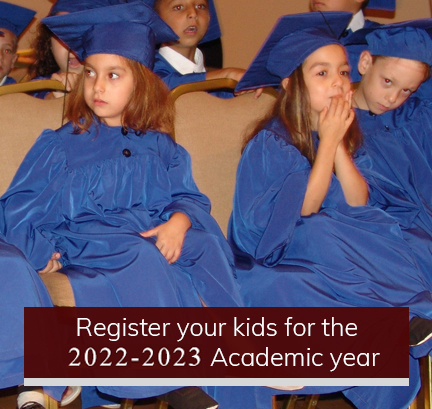Our Programs
American Program
The American curriculum was prepared specifically for foreign students and Lebanese students returning to Lebanon. L.A.S provides instruction in college level entrance exams such as SAT and TOEFL and IELTs as part of the curriculum from grades 9 till 12, in addition to special Arabic appropriate to students’ abilities and needs.
The American Curriculum is based on high standards of achievement in all subject areas. This broad and balanced approach is supported by a wide range of co-curricular activities that will equip students with the 21st century skills.As always, the role of education is to prepare students to become active, successful, and contributing members of the society. The essence of education’s role has not changed. However, there has been an important change that must be considered. Society has changed. We cannot adequately prepare students for the society that exists today or will exist tomorrow, if we continue to prepare them for the society that existed yesterday. In order to prepare students to play their role in the 21st century society we are a part of, we integrated the 21st century skills in our curricula .
The basic idea is that students need to be taught different skills than those learned by students in the 20th century, and that the skills they learn should reflect the specific demands that will be placed upon them in a complex, competitive, knowledge-based, information-age, technology-driven economy and society. At LAS we address educational strategies to help students develop higher-order thinking skills .
Beyond the assessment of reading, languages, mathematics and science, we at LAS implement and assess other essential skills that are in demand in the 21st century such as:
The basic idea is that students need to be taught different skills than those learned by students in the 20th century, and that the skills they learn should reflect the specific demands that will be placed upon them in a complex, competitive, knowledge-based, information-age, technology-driven economy and society. At LAS we address educational strategies to help students develop higher-order thinking skills .
Beyond the assessment of reading, languages, mathematics and science, we at LAS implement and assess other essential skills that are in demand in the 21st century such as:
- Critical Thinking: It empowers students to assess the credibility, accuracy and value of information, analyze and evaluate information, make reasoned decisions and take purposeful action.
- Problem Solving: Solving complex, multidisciplinary, open-ended problems that all individuals encounter routinely. The challenges people face don’t come in a multiple-choice format and typically don’t have a single right answer. Nor can they be neatly categorized as “math problems,” for example. We train students to identify problems, think through solutions and alternatives, and explore new options if their approaches don’t pan out.
- Creativity —the ability to think unconventionally, question the herd, imagine new scenarios and produce astonishing work.
- Communicating and collaborating. All students are trained to be skilled at interacting competently and respectfully with others. Students should possess the ability to collaborate seamlessly in both physical and virtual spaces. Students are trained to be able to communicate not just with text or speech, but in multiple multimedia formats.

Sign up for the LAS newsletter to stay updated with our news and pregress
Quick Facts
- LAS was established in 1992
- There are 400 students for the academic year 2022/2023
- Students to teachers ratio 10/1
- Each class has 20 students
- LAS has 51 teachers and 14 administrators